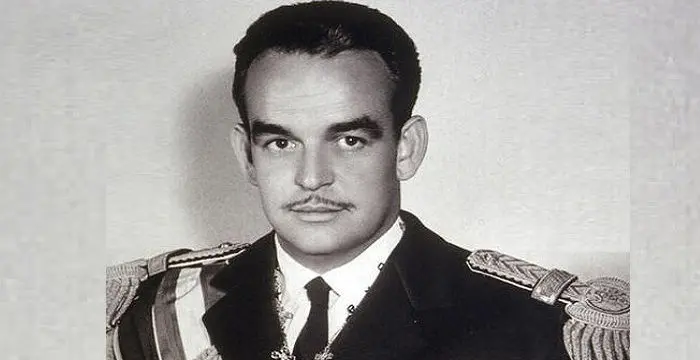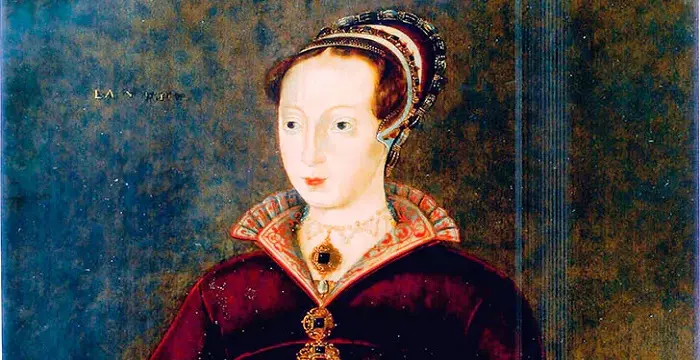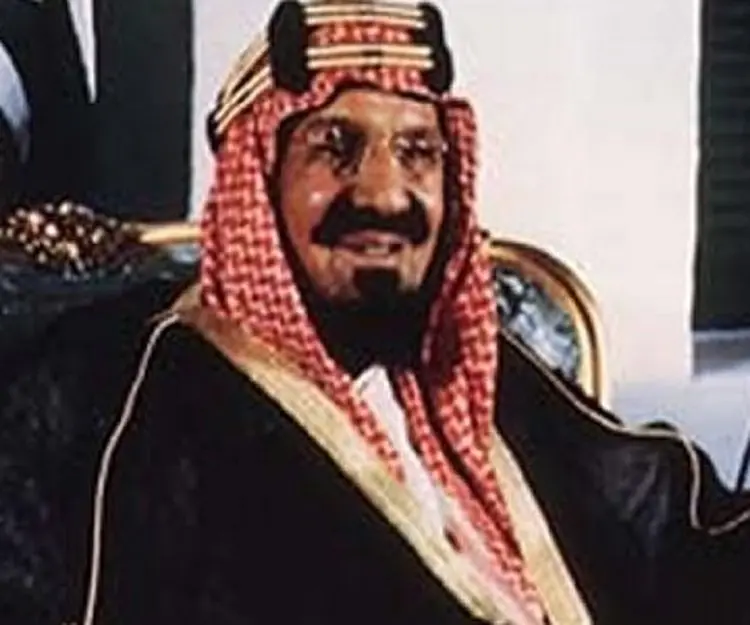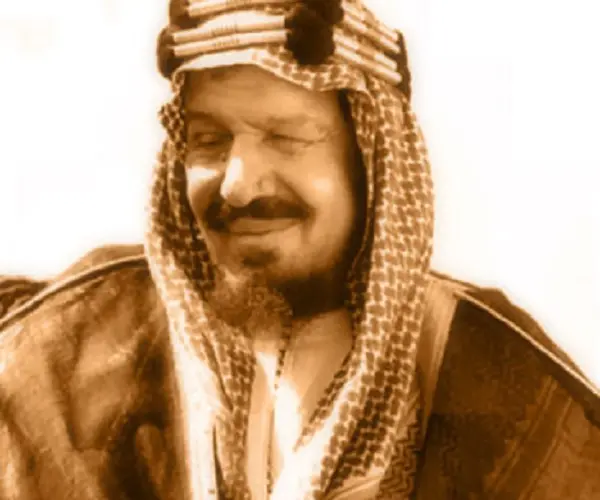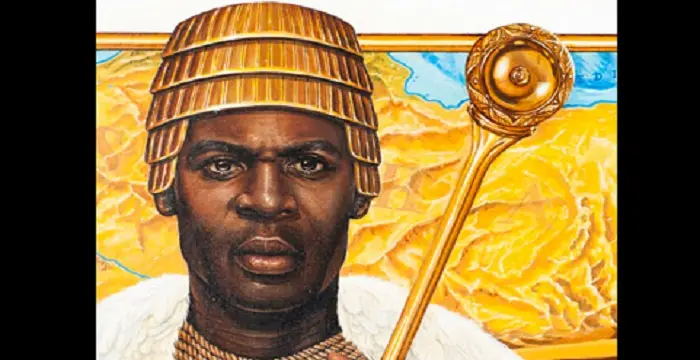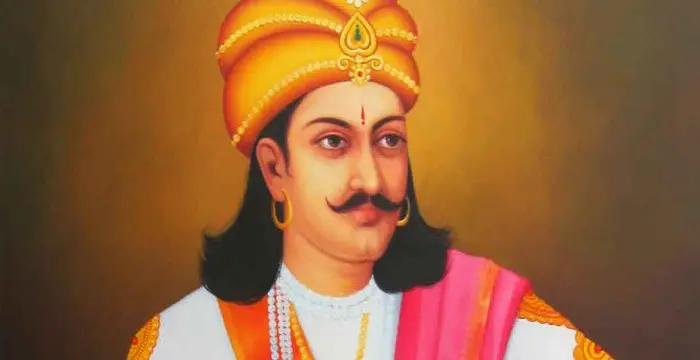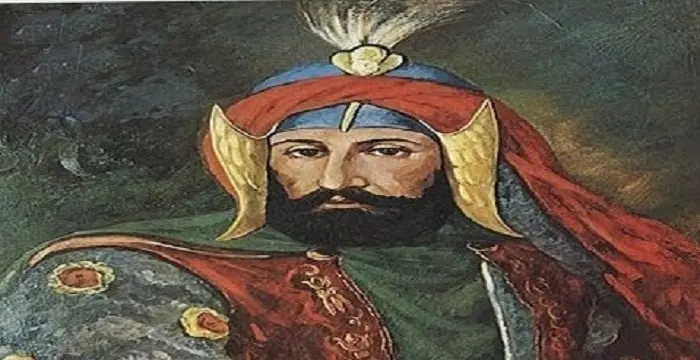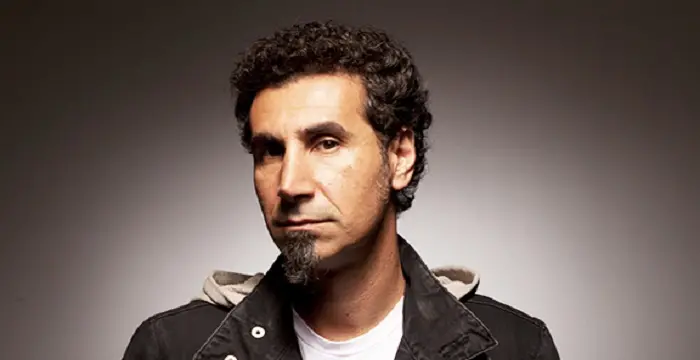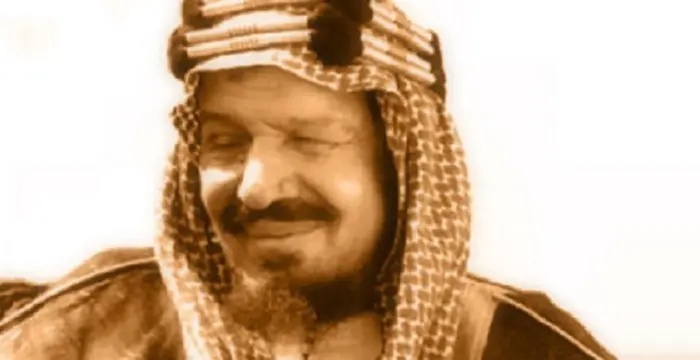
Ibn Saud - Monarch, Career and Childhood
Ibn Saud's Personal Details
King Abdulaziz al-Saud was the first monarch of Saudi Arabia
| Information | Detail |
|---|---|
| Birthday | January 15, 1876 |
| Died on | November 9, 1953 |
| Nationality | Saudi Arabian |
| Famous | Philanthropists, Historical Personalities, Emperors & Kings, Leaders, Monarch |
| Spouses | Al Jawhara bint Musaed Al Jiluwi, Al Jawhara bint Saad Al Sudairi, Fahda bint Asi Al Shuraim, Haya bint Saad Al Sudairi, Hussa bint Ahmed Al Sudairi, Tarafa bint Abdullah Al Alsheikh |
| Siblings | Noura bint Abdul Rahman Al Saud |
| Known as | King Abdulaziz, King Abdulaziz Al Saud, Abdulaziz bin Abdul Rahman bin Faisal bin Turki bin Abdullah bin Muhammad bin Saud |
| Childrens | Abdullah of Saudi Arabia |
| Founder / Co-Founder |
|
| Birth Place | Riyadh |
| Religion | Islam, Sunni Islam, Salafi movement, Wahhabism |
| Gender | Male |
| Father | Abdul Rahman bin Faisal |
| Mother | Sarah al Sudairi |
| Sun Sign | Capricorn |
| Born in | Riyadh |
| Famous as | Monarch |
| Died at Age | 77 |
// Famous Monarch
Rainier III, Prince of Monaco
Rainier III, Prince of Monaco was one of the longest reigning monarchs in European history. This biography of Prince Rainier III provides detailed information about his childhood, life, achievements, works & timeline.
Lady Jane Grey
Lady Jane Grey was the de facto monarch of England for a very short period from 10 July until 19 July 1553. This biography profiles her childhood, life, achievements and timeline
Ibn Saud's photo
Who is Ibn Saud?
King Abdulaziz al-Saud was the first monarch of Saudi Arabia. Born as the son ofAbdul Rahman bin Faisal Al Saud, the last ruler of the Second Saudi State, he consolidated his control over his ancestral lands and became the ruler of nearly all of central Arabia. He then unified his dominions into the Kingdom of Saudi Arabia in 1932 and became the first monarch of the consolidated nation. Even though his family, the House of Saud, had been a power in central Arabia for well over a century prior to his becoming a king, what he accomplished by conquering more dominions and unifying the lands was truly remarkable. The much feared and respected ruler was born as Abdulaziz ibn Abdul Rahman ibn Faisal ibn Turki ibn Abdullah ibn Muhammad Al Saud, but was popularly known as Abdulaziz within the Arab World and Ibn Saud outside. Brought up under the care of his strict father, he started displaying signs of his greatness at an early age. He was intelligent, talented, courageous, and well-trained in military skills. He grew up to be an astute leader and proved himself to be a very able king after coming to power. His death in 1953 marked the end of an important era in the history of the Arab world
// Famous Historical Personalities
Sundiata Keita
Sundiata Keita was the founder of the Mali Empire in West Africa. This biography profiles his childhood, early life, struggles, founding of empire, rule, administration, achievements and also gives some fun facts.
Ashoka
Ashoka was the third emperor of the Mauryan Dynasty and ruled almost the entire Indian subcontinent. This biography profiles his childhood, life, reign, achievements and timeline
Jetsun Pema
Jetsun Pema is the Queen consort of Bhutan. Check out this biography to know about her childhood, family life, achievements and fun facts about her life.
Childhood & Early Life
Abdulaziz al-Saud was born on 15 January 1876 in Riyadh, Emirate of Nejd, as the son of Abdul Rahman bin Faisal and Sarah Al Sudairi. His father was the last ruler of the Second Saudi State. His family, the House of Saud, had been a major power in central Arabia for over a century.
He father ensured that he received a proper training from an early age. Initially he was trained under his father who later put him under the care of Sheikh Gadi Abdullah Al Kharji. Along with his basic education he also learned the Holy Qur’an under the supervision of Sheikh Mohammad Bin Museibih.
He studied Islamic theology and jurisprudence under Sheikh Abdullah Bin Abdu latif Al Al Sheikh.
The House of Saud’s long-term regional rivals, the Al Rashidi, conquered Riyadh in 1890, forcing Abdulaziz al-Saud’s family to flee from their homeland. First his family sought refuge with a Bedouin tribe in the southern desert of Arabia before moving on to Bahrain. In Bahrain too their stay was short. Finally they traveled to Kuwait where they stayed in exile for almost a decade.
Abdulaziz al-Saud grew up to be a passionate young man, determined to unify all the ancestral lands that his family had lost. He was bold and courageous, and was blessed with great leadership skills. Thus he vowed to conquer back all the land that once belonged to the House of Saud.
Accession & Reign
Abdulaziz al-Saud started planning for gaining back his kingdom, and organized a small army consisting of his brother and cousins. He set out on a raiding expedition into the Najd in 1901.
Soon his army gained in numbers and he decided to attack Riyadh and reclaim it from his rival, the Al Rashidi. He led his men over the walls of the city in January 1902 and recaptured it.
He went from one victory to another over the next few years and by 1912 had completed his conquest of the Najd and the eastern coast of Arabia. During this time he founded the Ikhwan, a military-religious brotherhood which assisted in his later conquests.
After the World War I, he received considerable support from the British which enabled him to launch a full-fledged campaign against the Al Rashidi in 1920. Within two years, he defeated his rival and almost doubled the size of the Saudi territory.
He continued receiving support from the British government and with the help of international aid he consolidated his dominions into the Kingdom of Saudi Arabia, and became the king of this nation on 23 September 1932.
After ruling for a few years, he shifted his court from the Masmak Fort to Murabba Palace in 1938. He remained in this residence for the rest of his life.
He developed the requisite administrative and organizational systems in his government for its proper functioning and established several ministries as an advance administrative organization. He also paid special attention to education and infrastructure building.
Awards & Achievements
King Abdulaziz al-Saud was awarded the Order of the Bath in 1935.
The other honors he received were the Legion of Merit in 1947 and the Order of Military Merit (with White Decoration) in 1952.
Personal Life & Legacy
As per the Arab traditions and customs, he hadseveral wives and also took many concubines. The most well known among his wives were Tarfah bint Abdullah Al Al Sheikh, Lulua bint Salih Al Dakhil, Al Jawhara bint Musaed Al Jiluwi, Lajah bint Khalid bin Hithlayn, Jawhara bint Saad bin Abdul Muhsin Al Sudairi, and Hassa Al Sudairi.
He fathered several children, close to a hundred, including 45 sons. Some of his famous sons are Prince Turki of Najd, King Saud, King Faisal, Crown Prince Muhammad, King Khalid, Prince Nasser, and Prince Sa'ad.
He suffered from heart problems during his later years and fell seriously ill in October 1953. King Abdulaziz al-Saud died of a heart attack on 9 November 1953 at the age of 76. He was buried in Al Oud cemetery.
// Famous Emperors & Kings
Sundiata Keita
Sundiata Keita was the founder of the Mali Empire in West Africa. This biography profiles his childhood, early life, struggles, founding of empire, rule, administration, achievements and also gives some fun facts.
Ashoka
Ashoka was the third emperor of the Mauryan Dynasty and ruled almost the entire Indian subcontinent. This biography profiles his childhood, life, reign, achievements and timeline
Murad IV
Murad IV was one of the mighty Sultans in the history of the Ottoman Empire. This biography profiles his childhood, family, accession, rule, administration and timeline.
Ibn Saud biography timelines
- // 15th Jan 1876Abdulaziz al-Saud was born on 15 January 1876 in Riyadh, Emirate of Nejd, as the son of Abdul Rahman bin Faisal and Sarah Al Sudairi. His father was the last ruler of the Second Saudi State. His family, the House of Saud, had been a major power in central Arabia for over a century.
- // 1890The House of Saud’s long-term regional rivals, the Al Rashidi, conquered Riyadh in 1890, forcing Abdulaziz al-Saud’s family to flee from their homeland. First his family sought refuge with a Bedouin tribe in the southern desert of Arabia before moving on to Bahrain. In Bahrain too their stay was short. Finally they traveled to Kuwait where they stayed in exile for almost a decade.
- // 1901Abdulaziz al-Saud started planning for gaining back his kingdom, and organized a small army consisting of his brother and cousins. He set out on a raiding expedition into the Najd in 1901.
- // Jan 1902Soon his army gained in numbers and he decided to attack Riyadh and reclaim it from his rival, the Al Rashidi. He led his men over the walls of the city in January 1902 and recaptured it.
- // 1912He went from one victory to another over the next few years and by 1912 had completed his conquest of the Najd and the eastern coast of Arabia. During this time he founded the Ikhwan, a military-religious brotherhood which assisted in his later conquests.
- // 1920After the World War I, he received considerable support from the British which enabled him to launch a full-fledged campaign against the Al Rashidi in 1920. Within two years, he defeated his rival and almost doubled the size of the Saudi territory.
- // 23rd Sep 1932He continued receiving support from the British government and with the help of international aid he consolidated his dominions into the Kingdom of Saudi Arabia, and became the king of this nation on 23 September 1932.
- // 1935King Abdulaziz al-Saud was awarded the Order of the Bath in 1935.
- // 1938After ruling for a few years, he shifted his court from the Masmak Fort to Murabba Palace in 1938. He remained in this residence for the rest of his life.
- // 1947 To 1952The other honors he received were the Legion of Merit in 1947 and the Order of Military Merit (with White Decoration) in 1952.
- // 9th Nov 1953He suffered from heart problems during his later years and fell seriously ill in October 1953. King Abdulaziz al-Saud died of a heart attack on 9 November 1953 at the age of 76. He was buried in Al Oud cemetery.
// Famous Philanthropists
Kevin Costner
Kevin Costner is an American actor, director and singer who is best known for his portrayal of rugged individuals with complex emotions. This biography provides detailed information about his childhood, life, achievements, works & timeline
Stevie Nicks
Stevie Nicks is singer-songwriter rated among the 100 Greatest Singers of All Time by Rolling Stone Magazine. This biography of Stevie Nicks provides detailed information about her childhood, life, achievements, works & timeline.
Princess Ameerah Al-Taweel
Princess Ameerah Al-Taweel is a Saudi Arabian princess widely recognized for her philanthropy and activism. Check out this biography to know about her childhood, family, life history and achievements.
Shakira
Shakira is a highly popular award winning Columbian pop singer and dancer. This biography of Shakira provides detailed information about her childhood, life, achievements, works & timeline.
Serj Tankian
Serj Tankian is a famous American singer-songwriter and member of the band, ‘System of a Down’. This biography profiles his childhood, music career, life, achievements and timeline.
Sophia Bush
Sophia Bush is an American actress who found fame with the television series ‘One Tree Hill’. Check out this biography to know about her childhood, family life, achievements and fun facts about her.
Ibn Saud's FAQ
What is Ibn Saud birthday?
Ibn Saud was born at 1876-01-15
When was Ibn Saud died?
Ibn Saud was died at 1953-11-09
Where was Ibn Saud died?
Ibn Saud was died in Ta'if
Which age was Ibn Saud died?
Ibn Saud was died at age 77
Where is Ibn Saud's birth place?
Ibn Saud was born in Riyadh
What is Ibn Saud nationalities?
Ibn Saud's nationalities is Saudi Arabian
Who is Ibn Saud spouses?
Ibn Saud's spouses is Al Jawhara bint Musaed Al Jiluwi, Al Jawhara bint Saad Al Sudairi, Fahda bint Asi Al Shuraim, Haya bint Saad Al Sudairi, Hussa bint Ahmed Al Sudairi, Tarafa bint Abdullah Al Alsheikh
Who is Ibn Saud siblings?
Ibn Saud's siblings is Noura bint Abdul Rahman Al Saud
Who is Ibn Saud childrens?
Ibn Saud's childrens is Abdullah of Saudi Arabia
Which company or organization was founded by Ibn Saud?
Ibn Saud was the founder/co-founder of Ikhwan, Princes' School
What is Ibn Saud's religion?
Ibn Saud's religion is Islam, Sunni Islam, Salafi movement, Wahhabism
Who is Ibn Saud's father?
Ibn Saud's father is Abdul Rahman bin Faisal
Who is Ibn Saud's mother?
Ibn Saud's mother is Sarah al Sudairi
What is Ibn Saud's sun sign?
Ibn Saud is Capricorn
How famous is Ibn Saud?
Ibn Saud is famouse as Monarch
